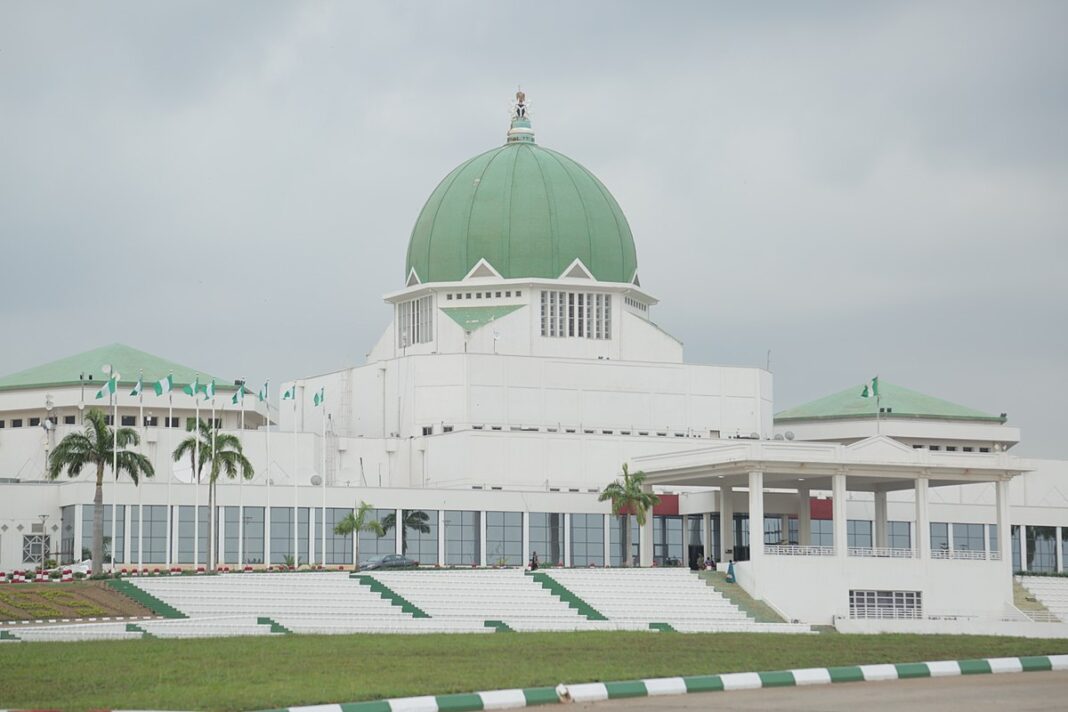Indications emerged on Friday that the National Assembly would pass the 2024 Appropriation Bill of N27.5tn on Tuesday, December 19.
The Senate and the House of Representatives had earlier on Friday passed the ‘Renewed Hope’ budget for second reading.
The Deputy Senate President, Jibrin Barau, hinted during the plenary that the budget might be passed by the lawmakers on December 19 before embarking on their Christmas and New Year break.
During deliberations on Friday, senators applauded President Bola Tinubu for his good intentions for the country, but some lamented the failure of the executive to provide the details of the budget.
The budget was passed for second reading and referred to the Committee on Appropriations after being put to a voice vote by Barau, who presided over the session.
“The budget is hereby referred to the Committee on Appropriations and the committee is mandated to submit the report to this chamber on December 19,” Barau stated.
The President had on Wednesday presented to a joint session of the National Assembly the budget, which he named, ‘Budget of Renewed Hope’.
Tinubu pegged the budget deficit for the 2024 fiscal year at N9.18tn.
He said the deficit would represent 3.88 per cent of the country’s total Gross Domestic Product.
Tinubu stated, “The N9.18tn deficit is lower than the N13.78tn deficit recorded in 2023, which represented 6.11 per cent of the GDP.
“The deficit will be financed by new borrowings totalling N7.83tn; N298.49bn from privatisation proceeds and N1.05tn drawdown on multilateral and bilateral loans secured for specific development projects.”
He added that his administration would limit the inflation rate to 21.4 per cent in 2024, adding that tax and fiscal policies were currently being reviewed.
“Our target is to increase the ratio of revenue to GDP from less than 10 per cent currently to 18 per cent within the term of this administration,” the President added.
To fund the budget, he stated that fresh loans would be collected, while the government would also explore public-private partnership arrangements to finance critical infrastructure.
Commenting on the budget, Minister of Finance and Coordinating Minister of the Economy, Wale Edun, said it would be financed with less deficit than the situation in the past.
He said, “So, there will definitely be fresh loans, and if those loans are maturing, they will be financed.
“And as always, you’re not going to be financing all the loans from the revenue; so, they will be fresh loans
“There will be continuous reliance on loans, but less so. The important thing is that the size of the budget that is being relied on from borrowing is downsized.”
Contributing to the debate on Friday, Senator Babangida Hussaini (All Progressives Congress, Jigawa North West), raised the issue of insecurity in the country, tracing it back to a lack of unemployment for citizens.
According to him, it is a necessity to work on the skills of unemployed youths and create jobs for them.
“Unemployment is a common problem in this country; we must find jobs for these youths. Sometimes there are jobs but no skills, so we should step up to look into the skills of these youths. We must also step up our legislative functions of oversight,” Hussaini stated.
Senator Tahir Monguno (APC, Borno North) said, “There is a saying that an idle mind is a devil’s workshop. There is a need for us to create and generate employment, which will ease the issues of insecurity in the country.”
Senator Sadiq Umar (APC, Kwara North) expressed worry over the continuous rise in debt servicing, which he noted had been a trend since 2015.
“The debt servicing (figure) is worrisome but we will look forward to how this will be managed. The recurring expenditure is very high as well and the capital expenditure is an increase over that of last year, and there has been a gradual increase since 2015”
In his contributions, Senate Chief Whip, Ali Ndume (APC, Borno South), responded to the issue of borrowing, stating that it would be worthwhile when Nigerians began to see the developments the loans were being used for.
Ndume said, “The capital expenditure has now gone up, which is the first in the country. The deficit is also commendable.
“Once Nigerians see the reason why we are borrowing, it will be worthwhile. What we need to do is allow the President to give us a renewed hope.”
Senator Aliyu Kabiru said the basis of the 2024 budget was rational.
“The oil price benchmark is rational; the exchange rate is also rational. However, I think we are beginning to see fiscal discipline in our budget framework. Projection around the revenue is also achievable and it is important to have a realistic bill and that will benefit the common man,” he submitted.
Senator Eyinnaya Abaribe (All Progressives Grand Alliance, Abia South), complained that the budget did not capture the state of the power sector despite being an important element driving the economy.
Abaribe said, “How do we create jobs if the issue of power failure in Nigeria is not addressed? Aside from the government, all the self-employed people from manufacturing industries to business centre owners, need electricity to power their enterprises and remain in business.
“At the committee level, we need to look around the projections and proposals made in the budget for required organisations, for what Nigeria and Nigerians need, or else if we leave it as it is, it is garbage in, garbage out.”
Senator Abba Moro in his contribution said the seven per cent of the budget proposal earmarked for the education sector was too small and a far cry from the 26 per cent recommended by the United Nations Educational Scientific and Cultural Organisation.
He added that the enveloping system of budgeting would not make the yearly budget impactful in terms of implementation.
“The Enveloping system of budgeting is a cesspool of corruption. We need to seek alternatives because we cannot continue doing things the same way all the time and expect different results,” Moro added.





